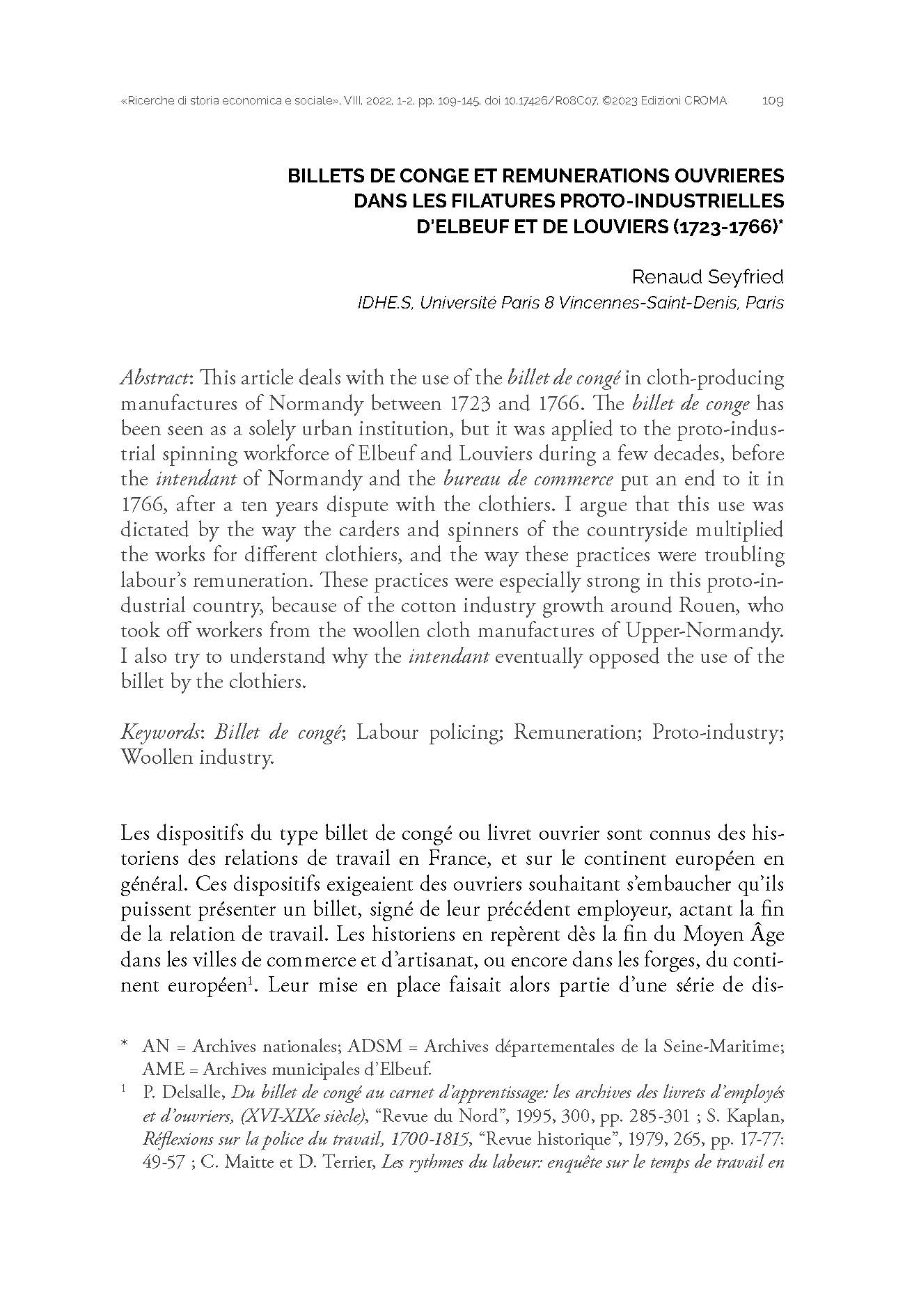Billets de congé et rémunérations ouvrières dans les filatures proto-industrielles d’elbeuf et de louviers (1723-1766)
0,00 €
Abstract: This article deals with the use of the billet de congé in cloth-producing manufactures of Normandy between 1723 and 1766. The billet de conge has been seen as a solely urban institution, but it was applied to the proto-industrial spinning workforce of Elbeuf and Louviers during a few decades, before the intendant of Normandy and the bureau de commerce put an end to it in 1766, after a ten years dispute with the clothiers. I argue that this use was dictated by the way the carders and spinners of the countryside multiplied the works for different clothiers, and the way these practices were troubling labour’s remuneration. These practices were especially strong in this proto-industrial country, because of the cotton industry growth around Rouen, who took off workers from the woollen cloth manufactures of Upper-Normandy. I also try to understand why the intendant eventually opposed the use of the billet by the clothiers.

